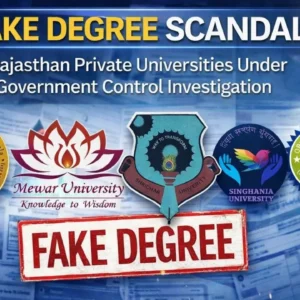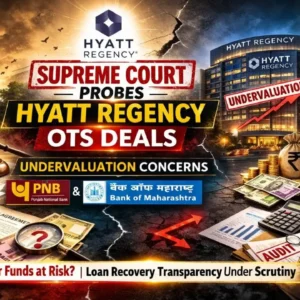Have you ever wondered how sophisticated scammers operate and why so many people fall victim? India has witnessed several jaw-dropping financial scams that affected millions of citizens and shook the economy. These cautionary tales reveal dangerous patterns that continue to evolve in today’s digital age. Let’s examine five major scams that every Indian should know about to protect their hard-earned money.
Let’s examine five major scams that every Indian should know about to protect their hard-earned money.
1. The UPI Verification Code Scam
The UPI payment system revolutionized India’s digital economy, but it also opened doors for sophisticated scammers. This widespread scam involves fraudsters posing as bank officials, customer service representatives, or even friends in need.
How it works: The scammer calls claiming your account needs “verification” or “activation” and asks for the 6-digit OTP sent to your phone. Once shared, they instantly drain your account.
“I lost ₹95,000 in just 3 minutes,” shares Ramesh Patel, a Mumbai resident. “The caller sounded so professional and knew details about my recent transactions. I never imagined it was a scam.”
The RBI reported over 200,000 such cases, with victims losing an estimated ₹500 crore collectively. Remember: No legitimate bank will ever ask for your OTP, UPI PIN, or CVV number.
2. Cryptocurrency Ponzi Schemes
As crypto gained popularity in India, so did related investment scams. These modern Ponzi schemes promise unrealistic returns (often 1% daily) through fake crypto trading platforms.
How it works: Scammers create professional-looking investment platforms with fabricated testimonials. Early investors receive returns paid from new investors’ money, creating false confidence that drives more recruitment.
The largest of these schemes collected nearly ₹900 crore from approximately 32,000 investors before collapsing. Many victims mortgaged homes or used retirement savings, left with nothing when the operators disappeared.
Most red flags include:
- Guaranteed returns (never possible in crypto)
- Pressure to recruit friends and family
- Complex withdrawal procedures
- Unregistered with SEBI or other regulatory bodies
3. Digital Land Scams
With metaverse and digital real estate gaining attention, scammers created fraudulent platforms selling fake digital land plots supposedly backed by real properties.
How it works: Victims purchase “digital land NFTs” they believe represent actual land ownership or future development rights. The scammers disappear after collecting millions, leaving worthless tokens.
The CBI investigated one such operation headquartered in Gurugram that collected over ₹350 crore from approximately 15,000 investors nationwide. The perpetrators used complex legal agreements that ultimately provided no actual ownership rights.
4. QR Code Payment Reversal Fraud
This increasingly common scam targets small businesses and individual sellers across India.
How it works: Scammers approach vendors claiming to make a purchase. Instead of sending money, they send a payment request disguised as a QR code. When the vendor scans it, money is transferred FROM the vendor TO the scammer instead.
They often create urgency by pretending the transaction is for emergency medical needs or time-sensitive situations, pressuring victims to act quickly without verifying details.
5. AI-Powered Investment Scams
Perhaps the most sophisticated modern scam uses artificial intelligence to create highly convincing investment opportunities.
How it works: Scammers deploy AI-generated “financial advisors” through realistic video calls. These deepfake advisors present compelling investment strategies, sometimes impersonating known financial experts or creating fictional ones with fabricated credentials.
“The technology was indistinguishable from a real video call,” explains cybersecurity expert Ananya Sharma. “The ‘advisor’ remembered previous conversations, answered technical questions competently, and even created personalized financial plans.”
Conclusion – Stay Informed with Sprouts News
Scams in India are becoming increasingly sophisticated, exploiting trust, technology, and financial illiteracy. From fake UPI verifications to AI-generated investment advisors, fraudsters are constantly evolving their tactics to target unsuspecting citizens. These five scams are not just cautionary tales—they are wake-up calls. Whether you’re a tech-savvy youth, a middle-class investor, or a small business owner, awareness is your first line of defense.
Frequently Asked Questions (FAQs)
Q1. How can I verify if an investment platform is legitimate?
Always check if the platform is registered with SEBI or RBI. Avoid platforms offering guaranteed returns or pushing you to recruit others.
Q2. What should I do if I’ve been scammed?
Immediately report the fraud to your bank, lodge a complaint at cybercrime.gov.in, and file an FIR at your nearest police station.
Q3. Can QR codes be used to steal money?
Yes. Scammers use payment requests in QR codes that can trick you into sending money instead of receiving it. Always verify before scanning.
Sprouts News is committed to keeping you informed, safe, and one step ahead of cybercriminals. Our investigative journalism, expert-backed insights, and real-time alerts help you recognize red flags before it’s too late. Don’t wait to become a victim—stay ahead of the scam game.
Subscribe to Sprouts News, bookmark our scam alert section, and share this article with friends and family to create a well-informed community. Knowledge is your best protection.
For more real stories and verified updates, visit SproutsNews.com

















